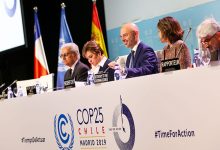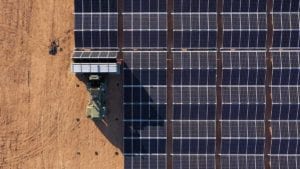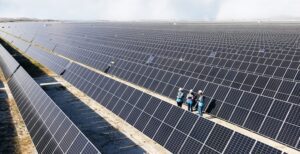Australia’s global ranking on progress towards meeting the UN Sustainable Development Goals continues to be dragged down due to a lack of meaningful policies on climate change.
In the latest country ranking published by the Sustainable Development Solutions Network, Australia ranks 37th out of a total of 193 countries, with Australia’s ranking continuing to be weighed down by high fossil fuel use and lacklustre emissions reduction targets.
In the 2020 edition of the Sustainable Development Report, Australia’s score for “climate action” saw it rank second last, sitting 176th of 177 countries assessed, with oil and gas heavy Brunei the only country that received a worse score.
Sitting almost at the bottom of the ‘climate action’ ranking, Australia scored lower than fossil fuel heavy countries, including Kuwait, the United Arab Emirates, Norway and Qatar.
Australia also ranked amongst the worst countries in terms of progress towards ‘Responsible consumption and production’, due to the significant volume of pollution attributable to coal-heavy manufacturing industries and a lack of policies to deal with electronic waste.
Australia did somewhat better in progress towards the ‘affordable and clean energy’ goal but still ranked outside the top 50, sitting at 53rd, a ranking also weighed down by the dominance of coal in Australia’s electricity system.
The Sustainable Development Goals establish a set of targets across 17 themes, ranging from eliminating poverty, ensuring access to health care and education, through to strong economic opportunities, governance and institutions, and clean resource use.
The goals were adopted by the United Nations General Assembly in 2015, and have been a benchmark against which countries have been assessed for their contributions to sustainable economic development.
While Australia scored highly on indicators relating to poverty, health and well-being, education, clean water and sanitation, and economic performance – explaining its overall ranking of 37 – that ranking was dragged down by poor scores in environmental indicators.
Australia scored poorly on development issues relating to pollution, particularly those related to the use of cleaner forms of energy.
Major deficiencies were identified for indicators relating to ‘responsible consumption and production’ as well as climate action and the emissions intensity of its electricity system.

European countries swept the top 15 positions in the overall ranking of countries, with Sweden taking first place, followed by Denmark, Finland, France and Germany.
Australia ranked below major trading partners, including New Zealand (16th, the highest ranked country outside of Europe), Japan (17th), South Korea (20th), Canada (21st) and the United States (31st).
Australia only succeeded in improving its ranking by just one place compared to the 2019 edition of the Sustainable Development Report and with Australia sitting behind Costa Rica (35th) and Lithuania (36th).
The 2020 edition of the Sustainable Development Report gave the most attention to the response of each country to the Covid-19 pandemic – an area were Australia ranked highly, sitting third behind only South Korea and Latvia.
Australia’s comparatively strong response to Covid-19 has prompted calls for the Morrison government to apply the same, science driven approach to the health challenge to other major challenges, including climate change.
“There are many countries that consider themselves world leaders but now wish they had taken earlier and stronger action against COVID-19. Australia listened to the experts, took prompt action, and can hopefully look back on the pandemic with few regrets,” Chair of the Monash Sustainable Development Institute, John Thwaites, wrote in a piece for the Conversation.
“But on current form, there will be plenty to regret about our reluctance to follow scientific advice on climate change and environmental degradation, and our refusal to show anything like the necessary urgency.”
Australia has emerged as an international laggard with respect to its response to climate change and has been accused of actively obstructing progress towards global cooperation to reduce greenhouse gas emissions, including through United Nations climate change talks.






